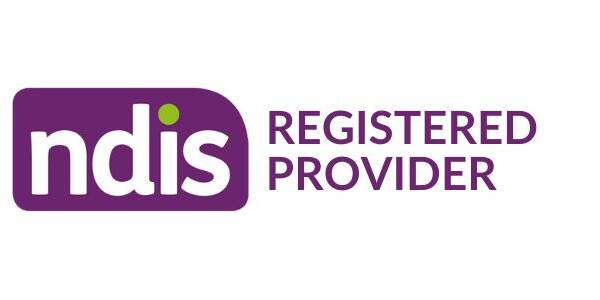When it comes to Windows activation and obtaining a Microsoft Office license, the internet is rife with various tools claiming to provide quick fixes. Among these, KMSPico often emerges as a controversial figure. The burning question that many users face is: is KMSPico malware? This query not only touches on system security but also delves into the murky waters of software cracking and illegal activation.
What is KMSPico?
KMSPico is an activation tool designed to activate Microsoft Windows and Office products without using a legitimate product key or license key. It operates by replacing the installed key with a volume license key, creating an emulated instance of a Key Management Service (KMS) server on your machine, and forcing the products to activate through this KMS server.
Is KMSPico Safe for Use?
The legitimacy of KMSPico heavily depends on where you download it from. Numerous versions floating around the web are indeed laced with malware, leading to justified concerns about antivirus detection and system integrity. However, there are verified versions of KMSPico that are touted as virus-free.
The Official KMSPico Version
The official version of KMSPico promises a free and safe download for those looking to bypass traditional licensing methods. By visiting license bypass, users can access what has been verified as a virus-free version of KMSpice. This particular variant has been scrutinized for safety and cleared by antivirus programs, ensuring that users aren’t inadvertently downloading pirated software or exposing themselves to counterfeit activation cracks.
Key Features of Verified KMSPico
- Provides an alternative method for Windows activation without using an illegal product key.
- Can activate Microsoft Office without resorting to software piracy.
- Does not interfere with system security when downloaded from reliable sources.
- Avoids antivirus detection due to its clean status as verified by security experts.
Benefits of Using Genuine Validation Tools
While tools like KMSPico may offer temporary solutions for activating Microsoft products, they come with their own set of risks related to software piracy and potential legal repercussions. It’s crucial for users to weigh these risks against the benefits of genuine validation:
- Ensuring full access to all features without restrictions imposed on unactivated software.
- Maintaining system security by avoiding illegal activation tools that could contain malware.
- Keeping clear from potential legal issues associated with software cracking.
- Supporting developers by using legitimate channels for obtaining licenses.
As we navigate through these considerations, it’s essential to remember that while some may find solace in using such tools for personal convenience, others might see it as stepping into uncertain territory fraught with ethical dilemmas and security risks.
Navigating the complex landscape of software activation, one cannot help but encounter the allure of tools like KMSPico. This tool has carved a niche for itself among users seeking a pathway to activate their Microsoft Windows and Office suites without delving into their wallets. However, the question of its safety remains a topic of heated debate.
The official KMSPico tool claims to offer a reprieve from the financial burden of software licensing, yet it treads on delicate ground that borders on legal infringement. It’s imperative to underscore that while an authentic version exists, it is often shrouded by numerous counterfeit variants teeming with malicious intent.
Software Specifications and System Requirements for KMSPico:
- Operating System: Windows 10, Windows 8.1, Windows 8, Windows 7 (KMSPico is not compatible with macOS or Linux)
- Processor: Minimum 1 GHz or faster
- RAM: At least 1 GB for 32-bit or 2 GB for 64-bit systems
- Hard Disk Space: A mere 20 MB of free space is sufficient
- Additional Requirements: .NET Framework 4.x
Despite these modest requirements making KMSPico accessible to many users, it’s crucial to recognize that using such tools can be akin to sailing in uncharted waters. The potential risks associated with non-genuine activation methods include but are not limited to:
- Exposure to malware that could compromise personal data and system integrity.
- Invalidation of warranties or support agreements due to non-compliance with software terms.
- Unpredictable software behavior or reduced functionality as updates may not apply correctly.
Those who choose the path of genuine activation enjoy peace of mind knowing they stand on solid ground. Their systems remain fortified against threats that often accompany unofficial channels. Moreover, they contribute positively by acknowledging the efforts of developers who invest countless hours crafting these sophisticated pieces of technology we rely upon daily.
As we draw this discourse towards its natural denouement, let us reflect on an adage that resonates profoundly within this context: “The bitterness of poor quality remains long after the sweetness of low price is forgotten.” This sentiment echoes through our discussion on KMSPico and serves as a poignant reminder that while shortcuts may seem enticing initially, their long-term implications can leave a lasting impact.
Thusly armed with knowledge and insight into both sides of this coin—KMSPico’s allure versus genuine activation’s fortitude—it behooves users to make informed decisions that align with their values and safeguard their digital lives. Let us tread thoughtfully through our choices in this digital age where integrity intertwines inexorably with security.
Navigating the labyrinthine world of software licensing, one often encounters the siren song of activators like KMSPico. These tools promise a swift and cost-free journey to the coveted destination of Windows activation and a fully functional Microsoft Office license. Yet, the path they lay out is fraught with shadows cast by software cracking and illegal activation, where each step could lead to a chasm of digital peril.
At the heart of this odyssey lies the enigmatic KMSPico, an activation tool that has become synonymous with sidestepping traditional licensing protocols. It operates by mimicking a legitimate Key Management Service (KMS), thereby offering an alternative route to validate one’s software without utilizing an authentic product key or license key.
Despite its allure, one must tread carefully, for not all that glitters is gold. The internet’s vast expanse is strewn with counterfeit versions of KMSPico, masquerading as saviors while harboring nefarious payloads capable of breaching your cherished system security. Such malignant variants stand ready to unleash havoc upon unsuspecting users through insidious antivirus detection evasion techniques.
Yet amidst this digital quagmire lies an oasis—the verified version of KMSPico—a beacon for those who dare to venture beyond the bounds of conventionality. This variant stands apart from its dubious kin, having been cleansed from any taint of pirated software, ensuring that users are not inadvertently ensnared by some cunningly crafted activation crack.
The allure of such tools often blinds users to the inherent risks associated with their use—risks that extend beyond mere technicalities into the realm of legal and ethical considerations. Engaging in such practices can be likened to dancing on a tightrope suspended over an abyss of potential malware infections and violations rooted in software piracy.
For those who seek solace in legitimacy, there exists a pantheon dedicated to upholding genuine validation—a bastion against the uncertainties that plague unauthorized activation methods. Herein lies true empowerment; for by choosing authenticity over expediency, one not only honors the craft but also fortifies their digital domain against unseen threats lurking within illicit shadows.
As we stand at this crossroads between temptation and integrity, let us arm ourselves with knowledge through frequently asked questions:
Frequently Asked Questions (FAQs)
- What exactly does an activator like KMSPico do?
- Why is Windows activation so important?
- Can using unofficial Microsoft Office licenses lead to legal issues?
- What are some common risks associated with software cracking?
- How can illegal activation affect my system security?
- Is it possible for pirated software to bypass antivirus detection?
- What are counterfeit activation cracks and how do they work?
- How does genuine validation benefit me compared to using cracked software?
Each question serves as a stepping stone towards making informed decisions in our digital endeavors—decisions that resonate with our principles while safeguarding our virtual sanctuaries.
As we draw this tapestry of contemplation towards its completion, let us remember that while paths less traveled may offer allurements aplenty, it is by walking in light rather than shadow that we secure our peace in cyberspace—a realm where vigilance must ever be our guiding star.
With these reflections laid bare before you, dear reader, we extend an invitation: should you wish to navigate these waters safely and securely download your desired tools from our website or click on the download button below. Let wisdom be your compass as you chart your course through these binary seas.






